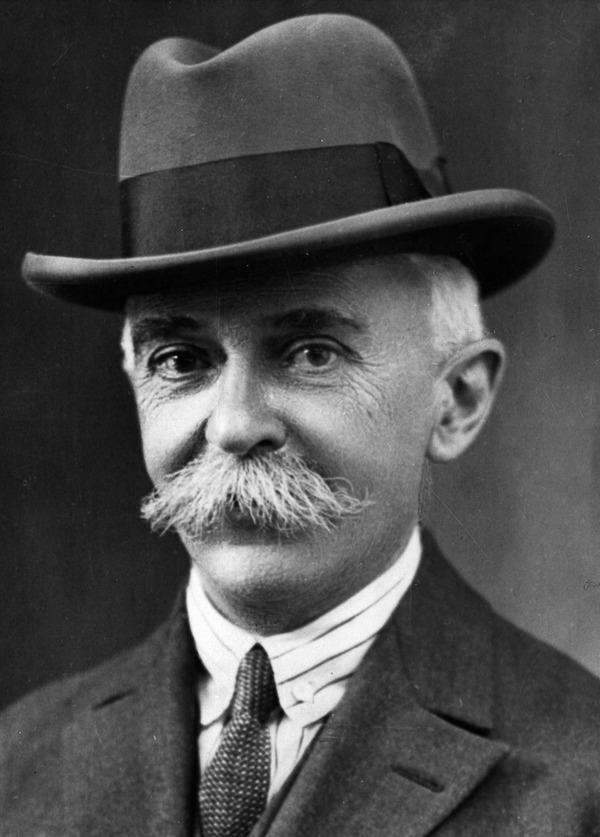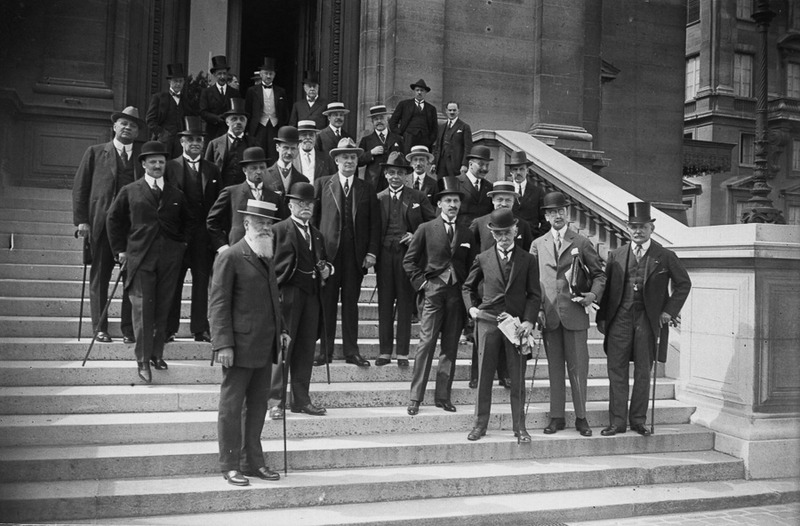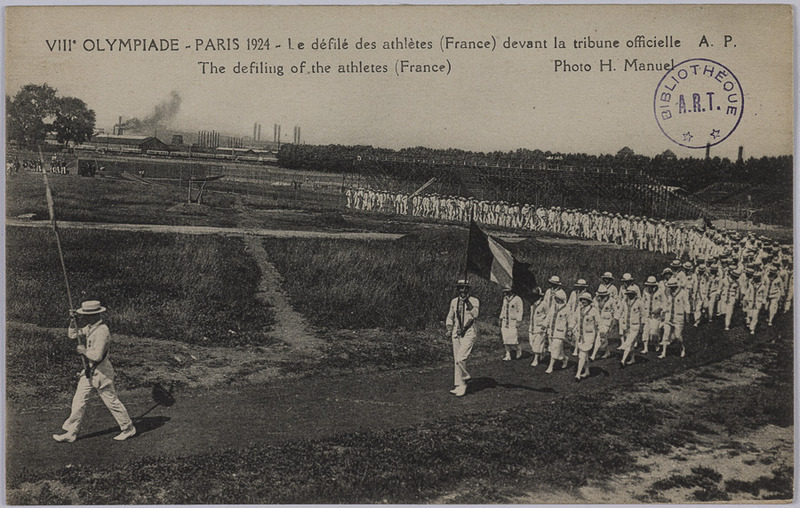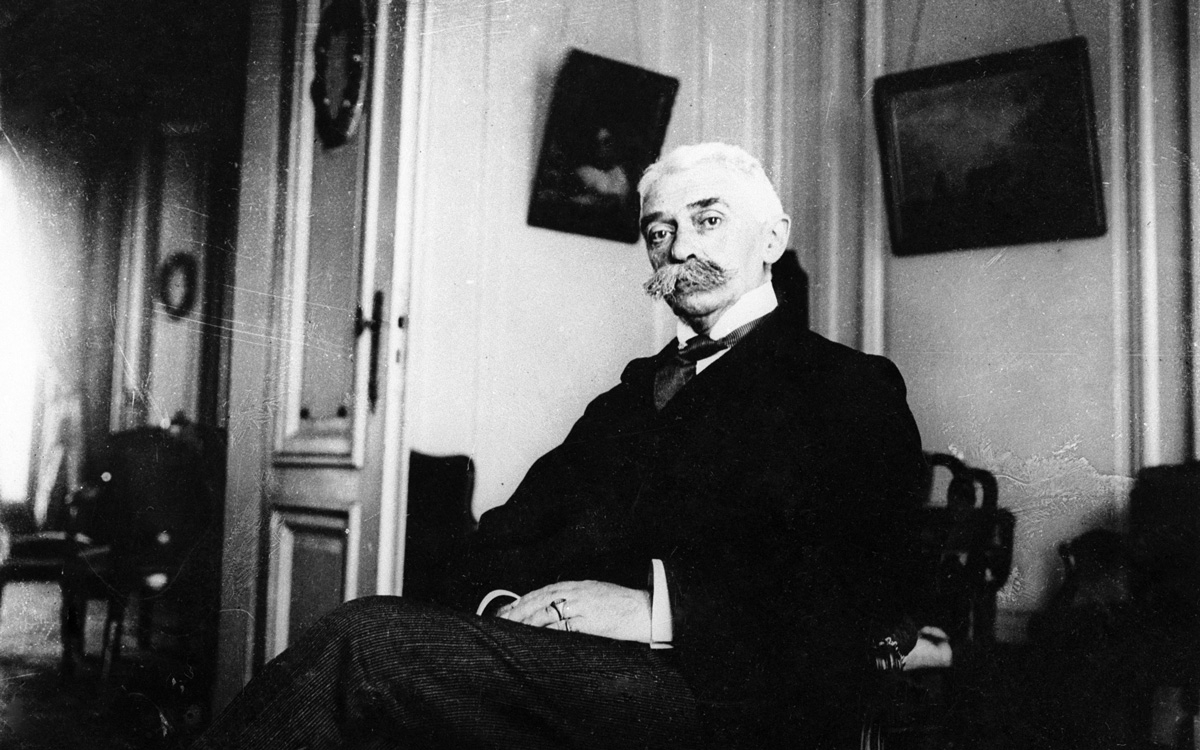Content
Cette page est aussi disponible en français
In a speech at the Sorbonne, Pierre de Coubertin breathed new life into the Olympic Games. Portrait of a visionary man… with his dark side.
Pierre de Coubertin (born Charles Pierre Fredy de Coubertin) was a Parisian baron, born on January 1st, 1863 at 20 rue Oudinot, in Paris' 7th arrondissement. At the age of 24, he abandoned a military career and decided to serve France by reforming its educational system, which he considered outdated and unimaginative.

Pierre de Coubertin (1863-1937), French educator, renovator of the Olympic Games.
Crédit photo :
© Albert Harlingue / Roger-Viollet
A curious, athletic man …
He traveled to England and America, where he was struck with the importance attached to sports in the educational system. A keen sportsman himself, he practiced boxing, fencing, horse-riding and rowing. With the support of Georges Morel, secondary education director, Coubertin decided to convince students and teachers to set up school sports structures. In 1889, the Union des sociétés françaises de sports athlétiques (Union of French Athletic Sports Societies) was created, with Coubertin as its long-serving General Secretary. The Union was the first step towards the federal level of the National Sports Committee.
… and visionary
Pierre de Coubertin believed that to make sport more popular, it had to be internationalized. He wanted to recreate the ancient Olympic Games, which began in Olympia, Greece, in 776 BC and were held every four years for twelve centuries before being abolished. A few centuries later, on June 23rd, 1894, Pierre de Coubertin founded the "International Olympic Committee" (IOC) during a ceremony at the Sorbonne University in Paris. He was 31 years old at the time.

Group of sports officials at the Ministry of Foreign Affairs, during the Olympic Games (3rd from right: Pierre de Coubertin). Paris, 1924.
Crédit photo :
© Albert Harlingue / Roger-Viollet
At the same time, delegates from twelve countries voted unanimously in support of his proposal to revive the Olympic Games. In the 18th and 19th centuries, various attempts had already been made to restore a form of "Olympic Games", including one in England that greatly inspired Coubertin.
The first modern games were held in Athens in 1896, then Paris hosted two in 1900 and 1924. On July 24th, 1908, Coubertin delivered his speech on the values of the Olympic ideal, with the famous phrase: "The important thing is to take part". Although Coubertin didn't actually come up with it. It was inspired by the Bishop of Pennsylvania, Ethelbert Talbot, in a sermon delivered at St. Paul's Cathedral on July 19th, 1908, for the London Games. He was quoted as saying: "In these Olympiads, the important thing is not winning, but taking part".
Pierre de Coubertin stayed in Lausanne, where he took up permanent residence in 1920. Because of the First World War five years earlier, he had obtained permission to establish the IOC headquarters there.

1924 Olympic Games. Parade of athletes (France) in front of the official stand at the Olympic stadium in Colombes (Hauts-de-Seine). Photograph by Henri Manuel. Postcard, photomechanical print, 1924. Bibliothèque historique de la Ville de Pari
Crédit photo :
© Henri Manuel / BHVP / Roger-Viollet
Pierre de Coubertin remained President of the IOC until 1925, when he resigned after being outvoted by the Committee - notably because of his refusal to accept women athletes at the Olympic Games. Bankrupt, embittered and alone, he resented his successors at the head of the IOC for not taking his opinions into consideration. He died suddenly in Switzerland of heart failure in 1937 at the age of 84. He was buried in Lausanne and his heart, according to his wishes, was placed in a monument on the site of the ruins of Olympia in the Peloponnese in Greece.
A contested man…
Pierre de Coubertin was a conflicted man. Inventive, he was interested in everything. In Olympism, but also in physical education and scouting. His stances on various topics earned him many enemies.
In many fields he was a visionary but he was also quite reactionary. A man of his time and his social milieu, many of his ideas - which were commonplace and shared at the time - seem totally anachronistic and even scandalous today.
Coubertin was a stubborn and assertive colonialist. In his Memoirs , preserved in the International Olympic Committee's archives, he wrote: "From the very first days, I was a fanatical colonialist …Races have different values, and to the white race, of superior essence, all others must pledge allegiance."
Coubertin also made no secret of his misogyny. He was relentless in his desire to ban women from Olympic competitions: "We believe that the Olympic Games should be reserved for men. A female Olympiad would be uninteresting, unattractive (…) ".
As already mentioned, the question of women's participation in the Olympic Games was one of the issues that led to his resignation from the IOC presidency in 1925. Three years later, at the 1928 Games in Amsterdam (Netherlands), women were allowed to compete for the first time.
…and honoured
Nevertheless, the Baron remains the "father" of the modern Olympic Games. In 1948, the 42nd IOC Session adopted the project of a World Olympic Day and chose the date of June 23rd in homage to June 23rd 1894, when the rebirth of the Olympic Games was made official thanks to Pierre de Coubertin.
World Olympic Day encourages people to take part in physical activity, usually with a simple running event. Today, Olympic Day is about a wide range of activities in keeping with the motto: "Move, learn and discover".
A phrase that the father of the Games made his own throughout his life.
Further reading in our Olympic Games series:
-
Retracing the 1900 and 1924 Paris Olympic Games (1/9)
-
The Olympic Games and Paris, a long history celebrated through art (2/9)
-
Alice Milliat, at the forefront of women's sport (3/9)
-
Insep, the Olympic champions factory (4/9)
-
The incredible story of Michel Théato, marathon winner in 1900 (5/9)
-
José Letartre, saddling up for Paris 2024! (7/9)
We want to hear from you!
Was this information useful to you?
Please note: we cannot reply via this form (please do not include any personal information).


